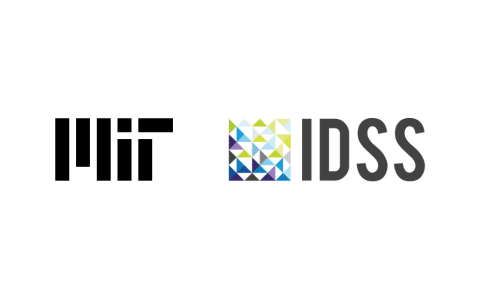Project Quality Management
This Project Quality Management Course will help you to ensure the projects meet quality standards.

Ratings
Level
Learning hours

Learners
Skills you’ll Learn
About this course
Quality is one immensely significant attribute that dictates, commands, and inspires our choices every single day across different spheres of life. This fact remains true in the business world as well where different teams strive to meet the quality benchmark set by the stakeholders for a wide set of projects. The main principle of project quality management remains to ensure that the project meets or exceeds stakeholders' needs and expectations. In this course, we will cover the three main components of Quality Management- Quality planning, Quality assurance, and Quality control.
Course Outline
This comprehensive module on Organizational Behaviour, covers the concept, importance, elements, levels, types, and objectives of the field. It provides a deep understanding of the subject to enhance interpersonal and communication skills and create a positive work environment.
Quality is the extent to which a set of inherent characteristics meets a set of criteria.
Time, money, and efforts invested in planning and managing quality upfront will produce a reduction in costs later on.
Project Quality Management is the discipline used to ensure that the outcomes of the project, as well as the processes used to provide those outcomes, fulfil the stakeholders' requirements.
Ratings & Reviews of this Course
Frequently Asked Questions
Will I receive a certificate upon completing this free course?
What is the purpose of project quality management?
Quality management makes sure that the content that is presented satisfies the standards. It is the process that controls the cost of the project, establishes impact, and determines the steps to achieving and checking the standards. When performed in the right way, quality management lowers the risk of product failure or unsatisfied clients. It also reduces the investment poured in when the product fails because there might not be any iterations for quality. Quality management is applied across various fields like in the manufacturing industry, software development, marketing, websites, and others. When the quality is maintained, you only retain the old customers but also bring in new ones to your business either organically or through word of mouth. Hence, it is one of the proven ways to keep the business growing.
How do you ensure project quality?
To maintain consistent project quality from start to finish, you will have to:
- Define quality: It is essential to define quality since the entire team might follow the same.
- Commit to quality: Businesses view quality as a single, non-negotiable goal. Employees inevitably make trade-offs, and the quality will slip.
- Stick to project requirements: You will have to define requirements and stick to them until you complete the project. This reduces confusion and extra investment.
- Manage Quality: The team has to define practical approaches to manage quality, standards, and processes. Standards and quality processes drive these in the project blueprint.
- Perform quality check: Follow the blueprint and the defined approaches to check the standards of the project. It is an audit to evaluate the quality to meet customers’ expectations.
- Quality control: The deliverables have to satisfy quality standards so that they are defect-free and focus on quality from the start to the finish of the project. This is important to inspect and correct defects.
- Focus on the requirements: Requirements and quality go hand in hand. Defining and validating your requirements right and clearly will produce quality projects.
- Follow project blueprint: Make sure all the processes defined in your blueprint are followed efficiently and continually improve the processes.
- Documentation: Document all the phases and, at the completion, evaluate the processes and the improvements and translate them to future projects.
What are the 4 main stages of project quality management?
There are four stages in managing project quality. Components include Quality Planning, Quality Assurance, Quality Control, and Continuous Improvement.
- Quality Planning: Before you get into the processes of the project, you will need to have a blueprint that clearly shows the flow of the projects and the deadlines to achieve them.
- Quality Assurance: Quality assurance reduces the cost and the time spent on the projects. It retains the old clients and drives the new ones adding value to the project.
- Quality Control: Quality control inspects the products to ensure that the businesses deliver the best quality to their customers.
- Continuous Improvement: It is essential to understand the growing trends and necessities of the customers and deliver them to stay on top of businesses.
We shall talk about the details in the Project Quality Management course.
What is project quality management?
Project quality management is a continuous measurement of the quality of the activities and processes in the project. It deals with taking corrective actions until the project achieves the desired quality. For example, a plan is created to manage a product, and it could discover things like expert review, management review, and grammar review. These reviews have to complete the quality check. Inspecting the products deployed from the production line is one of the metrics of quality checks. The free Project Quality Management course will provide you with details on the subject.
Popular Upskilling Programs
Project Quality Management
Project Quality Management is an essential concept in the project management sphere, particularly regarding the successful completion of projects. Quality management involves establishing processes, procedures, and standards that ensure the quality of the project's deliverables and that they meet or exceed the customer's expectations. Quality management can be applied throughout the entire project lifecycle, from initial planning to the final delivery of the project's deliverables.
The Project Quality Management Course provides comprehensive training in the fundamentals of project quality management. This free course covers all the essential topics for any project manager, including quality planning, quality assurance, and quality control. The course syllabus discusses What is Quality? Importance of Managing Quality on a Project, and What is Project Quality Management? Why Project Quality Management? Main Components Of A Quality Management Process, Quality Planning, Quality Assurance, and Quality Control.
This Project Quality Control course begins with an introduction to the concept of quality and why it is essential to manage quality on a project. It then discusses the concept of project quality management and its various components. The course also provides an in-depth look at the various processes and procedures associated with quality management, such as quality planning, quality assurance, and quality control.
The course also covers the various tools and techniques used to manage quality effectively on a project. These tools include Six Sigma, Quality Function Deployment, and Total Quality Management. The course also provides an overview of how to assess the quality of a project's deliverables and ensure that the quality is maintained throughout the project.
The Project Quality Management Course also gives learners a certificate upon completing the course. This certificate is a great way to demonstrate your understanding of project quality management principles and your ability to apply these principles to any project effectively.
Overall, the Project Quality Management Course is an excellent way to understand the principles and processes associated with project quality management. The course provides the necessary knowledge and skills to manage the quality of any project effectively.































